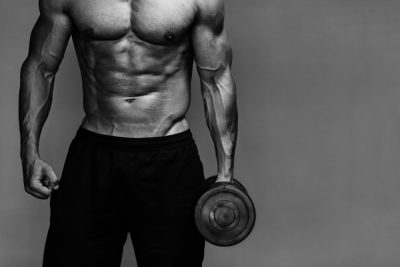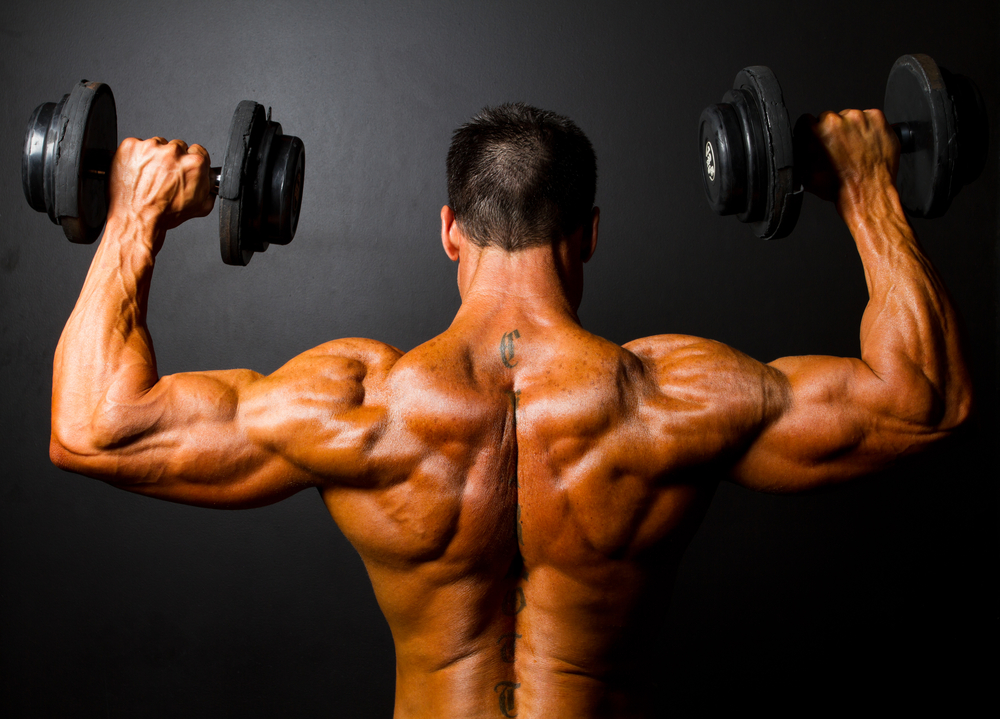Testosterone is known as one of the most vital hormones in your body that helps your organization thrive, repair, and grow. Testosterone is the primary sex hormone found in men that helps in performing sex-related functions, development of physical qualities, and all-round development.
Chemically, testosterone is known as a steroid, while biologically, it is regarded as an androgenic sex hormone. Both men and women produce testosterone.
While men produce it in a larger quantity of about five to ten milligrams per day, females produce smaller amounts for nearly ten-fold less every day.
What are Healthy Testosterone Levels?
The levels of testosterone in your body are not stagnant, and they fluctuate throughout the day. Men experience the highest level of testosterone during the day, and it gradually decreases as time goes on.
An average level of testosterone is controlled by the outburst of another hormone known as the gonadotropin-releasing hormone (GnRH). This hormone is released every one to three hours.
Asides the fluctuation of testosterone levels, the average healthy level of testosterone expected to be present in young adult men (19-39 years) is between 264-916 nanograms per deciliter.
While in women, the normal range of testosterone levels present in their body from the ages nineteen and above is around 8-60 nanograms per deciliter.
Research has shown that only twenty-five percent of that testosterone is biologically active. About 2-3 percent of the testosterone is seen as free testosterone, while the remaining testosterone is bound tightly to a particular type of protein known as the serum hormone-binding globulin(SHBG).
Estrogen, also known as the dominant sex hormone in women, increases the amount of serum hormone-binding globulin in the body, while testosterone and other types of androgens aid in reducing serum hormone-binding globulin.
It is possible to have a standard range of testosterone in your body, but if a large part of it is bound to serum hormone-binding globulin, then the rate of response your muscle tissues gives to your hormones would be decreased.
What Does Testosterone Do?
Testosterone can quickly enter cells and become bound to androgen receptors that act upon the nucleus of a cell. It also performs the function of being a prohormone in tissues and sex glands like hair follicles, fat, and skin.
In young adults, testosterone has the following effects:
Muscles: testosterone aids in increasing muscle strength, mass, and protein synthesis.
Body Fat: testosterone helps in restricting the storage of fat and heightens the amount of fat-burning beta-adrenergic receptors.
Brain: testosterone enhances memory, sex drive, cognition and also affects the feelings and moods.
Heart: it enhances cardiac output and regulates blood flow.
Bone: it assists in bone growth, maintenance of bone density, and the production of red blood cells.
Male sex organs: testosterone helps in the development of male sex organs like the testes, it assists in erectile functions, and it regulates sperm production and its viability.
Skin: testosterone assists in the production of hair on the body and face and collagen.
Kidneys: testosterone aids in the production of erythropoietin (EPO). It aids in the regulation of red blood cells.
Healthy testosterone levels are usually associated with lower mortality rates, proper immune function and health, reduced body fat, and an increased metabolic rate.
Men with lowered testosterone levels who have been supplemented with the hormone has been seen to improve in bone mineral density, sexual performance, high libido, reduced body fat, and a high energy level.
How Does Testosterone Affect Muscle Performance?
 Muscle building is different because it does not occur as a result of converting estrogen or androgen to testosterone. Testosterone is referred to as anabolic steroid because it directly enhances muscle growth even though your body is responsible for producing the steroid.
Muscle building is different because it does not occur as a result of converting estrogen or androgen to testosterone. Testosterone is referred to as anabolic steroid because it directly enhances muscle growth even though your body is responsible for producing the steroid.
Research has shown that testosterone helps heighten the amount of muscle fiber precursor cells referred to as satellite cells. Once activated, the precursor cells make their muscles bigger by becoming joined with the existing muscle fibers (hypertrophy) or the satellite cells joining together to form muscle fibers (hyperplasia).
Also, testosterone enhances the number of nuclei (control center) available in a muscle fiber, which would result in an increased amount of androgen receptors that can be bound in a muscle.
Testosterone is very vital for building and maintaining muscle mass because it is an anabolic and anti-catabolic steroid. The anti-catabolic attribute of testosterone blocks the power of hormones like cortisol to bond with their primary receptors.
How Testosterone Makes Muscles Stronger
Not up to recently has research shown that testosterone does not only increase the size of your muscles but also the strength and power. Testosterone has been shown to increase the level of calcium that is in a cell which boosts muscular contractions
How Testosterone Boosts Endurance
Testosterone aids in boosting the production of red blood cells. They are not only focused on muscle building and recovery, but they also aid in increasing EPO. The presence of more red blood cells means the carriage of oxygen to the blood and working muscles.
How Testosterone Boosts Athletic Performances
If your testosterone levels are within the normal range, it will not affect your athletic performance. Studies have shown that sprinting exercises tend to heighten bioavailable testosterone while throwing activities only caused them to decrease.
However, in women, athletes with high testosterone levels in running and throwing events outperformed their peers who had low bioavailable testosterone. The margin is 1.8, and 4.5 percent.
How Does Testosterone Affect Sexual Health and Fertility?
Testosterone is known for the development of male sexual development and fertility, but beyond that, testosterone supplementation has been proven to enhance men’s sexual function. The benefit of testosterone based on vigorous sexual activities are as follows:
Psychological: testosterone increases nitric oxide and the flow of blood.
Structural: testosterone aids in affirming that the male sex organ is performing and working correctly.
Neural: testosterone enhances the flow of impulses and the tissues needed for sexual functions
Antagonistic: testosterone aids in the obstruction of the enzyme that would prevent a man from maintaining an erection.
Supportive: testosterone aids in countering the effects on sexual activities that are closely related to diabetes, obesity, and aging.
How Does Testosterone Affect the Brain?
Testosterone significantly affects the brain in the sense that it increases the risky making of decisions and social dominance. The higher the level of testosterone present during fetus, puberty, and adolescence stage, the higher the chances of that person being intelligent but lacking necessary social skills like restraint or empathy.
The person might even begin to show signs of aggressiveness. Research has shown that if adolescents consume f testosterone supplements till they reach the age of twenty-seven, they tend to be more violent and aggressive.
Generally, men with high testosterone levels have an impressive memory recall. When men that start to age, with or without low testosterone levels and with an impaired or no impaired brain, are prescribed medical testosterone, studies have shown that there is a link between testosterone and age-related diseases because of the improvement.
How Does Strength Training Affect Testosterone?
Generally, research has shown that high-volume weight training above your average threshold enhances testosterone production. The exact type of approach can be adopted towards running, cycling, or even engaging in high-intensity interval training: attempt to complete more workouts under a smaller period of time.
Studies have shown that engaging in exercise later in the day than in the morning is proven to boost your testosterone response. This is because you are already experiencing a high level of testosterone during more time, and adding exercises would add little or no changes to it.
It is essential to train during the period when your focus and energy level is following being able to work out at the highest intensity.
How to Maintain a Healthy Testosterone Level
 Limit drinking
Limit drinking
Excessive intake of alcohol can gravely affect your testosterone levels. But drinking alcohol at an average rate has the ability to give you a false sense of confidence and remove stress temporarily because of an increase in your testosterone-to-cortisol ratio.
Control stress
Your testosterone level can be gravely decreased due to excess weight, overtraining included. It reduces your anabolic-to-catabolic ratio of testosterone-to-cortisol though chronic and high volume workouts have opposite effects.
Do not over diet
Prolonged low-calorie dieting causes your testosterone levels to wane drastically. What might look contradicting is the fact that testosterone levels decrease as a result of eating. But it is important to note that in order to keep your testosterone levels reasonable and healthy; you should avoid engaging in extreme fasting or starvation diets.
Conclusion
Testosterone is an anabolic steroid responsible for developing the sex organs in men, producing sperm, achieving firm erections, and producing red blood cells. Testosterone has numerous functions, of which Bodybuilding is among.
Testosterone aids massively in the building of muscle mass, bone density, and stripping off fat. A lowered testosterone level can cause many damages like a reduction in your sex drive, low libido, and erectile dysfunction.
But with the presence of testosterone, there is no room for obesity or excess weight gain but rather a well-built body.








COMMENTS